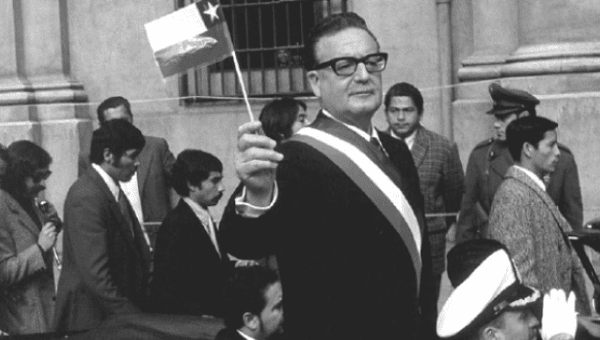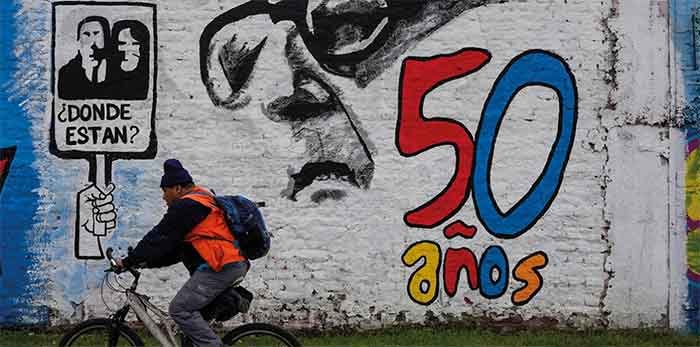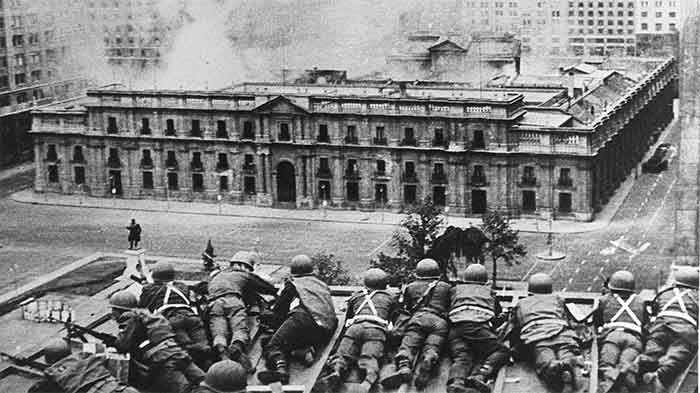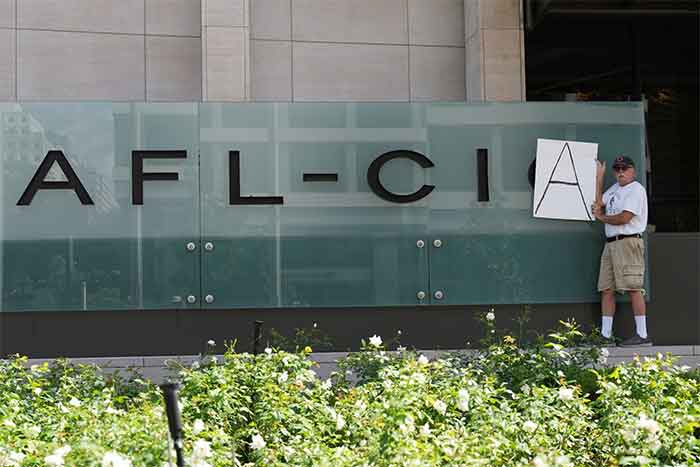
September 11 is an ominous day for Americans who well remember the horrific events that unfolded in New York in 2001 and what eventually became the War on Terror. But for Chileans, it is a day that is well remembered as the beginning of a US supported military coup that overthrew the democratically elected President Salvador Allende and ushered in 17 years of a brutal military dictatorship under the watchful eye of General and later President Augusto Pinochet. Allende, who died during the coup, was said to have committed suicide rather than be taken captive by Pinochet and his forces.
This year marks the 50th anniversary of the coup that brought Pinochet to power and threw the country into a backward spiral from which it is still extracting itself all these many decades later. Its legacy can still be found there in the privatization of public pensions, public services and continued repression with attacks on activists, journalists and the people of Chile.
During Pinochet’s dictatorship opponents to his regime were jailed, tortured, murdered or disappeared as he employed any brutal means at his disposal to support the fascist autocratic rule he had imposed on the country. An important reference to those events can be viewed in Costa-Gavras’s Academy Award winning political thriller, “Missing” which admirably portrays the circumstances surrounding the disappearance of American Charles Horman who was caught up in the coup and was disappeared.
To acknowledge the coup and its lingering legacy, an educational conference was held at the Martin Luther King Memorial Library in Washington on September 10 sponsored by the international labor group LEPAIO (Labor Education Project on AFL-CIO International Operations) along with their Chilean counterparts.
Organizers affirmed US involvement in the Chilean coup by acknowledging that “the AFL-CIO used US government funds” through the American Institute of Free Labor Development (AIFLD) “to support anti-government strikes and to help organize and support the coup against democratically elected President Salvador Allende” for his having nationalized the country’s copper mines that directly threatened the lucrative source of wealth of American interests, an action that meant he clearly had to go.
In 1997, the AIFLD morphed into the “Solidarity Center” by combining the unions four pre-existing labor institutes into one entity. Today the Solidarity Center operates in 62 countries that according to their web site “assists workers across the globe as, together, they fight discrimination, exploitation and the systems that entrench poverty—to achieve shared prosperity in the global economy.”
To this day the AFL-CIO has not taken responsibility for their complicity and remain stubbornly entrenched in their silence for their involvement. Nor for that matter has the union in its more than 100-year history ever consulted or ratified its American foreign policy support with its membership, which speaker Dr. Kim Scipes of Purdue University labeled as “Labor imperialism.” He went on to note that the AFT founded by Samuel Gompers strongly opposed all antiwar labor groups, a tradition that remains part of its fabric to this day.
Professor Ruth Needleman who lived in Chile at the time of the coup, in a video interview conducted by union activist Steve Zeltzer delineated “the plan and strategy” the CIA employed in socially engineering conditions to turn public sentiment and hatred towards Allende. These included labor action in concert with the AFL-CIO, consumer goods shortages, political operatives trained in the US who created friendly unions to “fight Communism,” CIA financed copper strikes and street violence that fragmented society and polarized the population. The lack of consumer goods in the marketplace affected the middle class that resulted for calls to “nationalize everything.” She sadly noted too that “in order to continue exploiting workers and resources in Chile they destroyed the most stable government in South America.”
She went on to say that control of the media was possible in which El Mercurio, the newspaper of record, was penetrated through “the placement of CIA members on its staff and in the office.” In furtherance of their objective to vilify and minimize Allende’s importance to the public, the paper by “only published his photograph three times with one in an altered state to show him as the devil.”
Ernesto Rojas reporting from Chile on Zoom describing a day of remembrance memorials held today in a seaside town public square for all those killed and who survived, noting that police for the first time told organizers they needed to gain permission in order to demonstrate. He also stated that another upheaval is likely to occur “due to high unemployment and high inflation” while also revealing that “Fascists in Chile are becoming more powerful. Democracy is the only solution for problems in society.”
The organizers of today’s teach-in are making three demands calling for the “Opening of books and report to all US workers and unionists on AFL-CIO operations in Chile and around the world.” To “Apologize to Chilean workers and people and compensate the families for the jailing and the murder of their family members.” And finally, to “End all funding of the ‘Solidarity Center’ by the US government and to build real and direct solidarity with workers in Chile and around the world.” To that end, activists are planning to present a petition to the AFL-CIO at their headquarters tomorrow listing their demands. They remain hopeful that they will be allowed to enter the building to do so in person but are prepared to rally outside in an effort to draw attention to the issue.
A related thematic event at the library is the recent placement of a temporary five-part mural titled “Todas Las Manos: Commemorating 50 years Since the Military Coup in Chile” by artist Francisco Letelier, son of Orlando Letelier along with artists from the Latin American Youth Center. The mural celebrates “…the pursuit of human rights and global justice and commemorates the 1976 assassination in Washington of former Chilean Ambassador Orlando Letelier and Ronni K. Moffitt.
It had been reported that when Letelier, who was a leading Pinochet opponent, was released in 1974 after being held in a Chilean prison for a year, that “DINA (Dirección de Inteligencia Nacional ) has long arms” and that “General Pinochet will not and does not tolerate activities against his government.”
On September 21, 1976, while driving through Sheridan Circle in Washington, DC Letelier along with his co-worker Ronni Moffitt at the Institute of Policy Studies were both killed when a remote-controlled bomb placed under their car exploded. Letelier’s assassination was the first international terrorist incident to take place on US soil.
Moffett’s husband, who was also in the car, survived the bombing. A memorial ceremony is held annually at Sheridan Circle where a permanent granite and bronze plaque resides next to the curb where the bombing took place.
Photo by Phil Pasquini
© 2023 nuzeink all rights reserved worldwide
(This article has appeared in Nuzeink)
Phil Pasquini is a freelance journalist and photographer. His reports and photographs appear in the Washington Report on Middle East Affairs, Pakistan Link and Nuze.ink. He is the author of Domes, Arches and Minarets: A History of Islamic-Inspired Buildings in America.













































